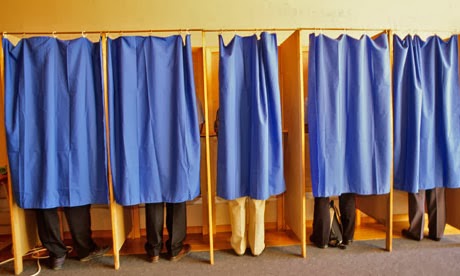 |
| NSA is always present |
This time last year, it would have trusted in the security of email. But last year was before Edward Snowden and the public revelations of the scope of the National Security Agency's PRISM electronic intelligence-gathering program. After Snowden, or post-PRISM, is a new digital world.
"We're now carrying our information to our allies on foot," said Peter Henzler, the vice president of the Bundeskriminalamt, known as the BKA. He was speaking recently at a German Interior Ministry panel on the country's digital future. The focus of the panel was how to counter U.S. surveillance measures and what it will take for Germans to be safe again on the Web. "We're no longer using the open Internet."
The message is clear: The United States no longer can be trusted not to spy on any and every facet of German life and policy. Henzler's concerns might sound extreme, but he was hardly alone on his panel, and the worries appear to be an accurate reflection of the wider German, and even European, concern about the reach of the NSA's surveillance program.
Hardly a week passes here without some new revelation about the dastardly depths to which the American spy program invaded German privacy, or at least a new way in which to react to the scandal.
Last week, for instance, the news broke that the United States had tapped the cellphone of Gerhard Schroeder when he was the German chancellor from 1998 to 2005. Given that it's been four months since news broke that the same American surveillance program was tapping the cellphone of the current chancellor, Angela Merkel, and had been tapping her phone for several years before she was chancellor, the revelation could hardly have been surprising.
Merkel, after all, was seen as an American ally. Schroeder, who sharply criticized U.S. intentions and efforts in Iraq and was visibly uncomfortable in the presence of then-President George W. Bush, was seen as something less than an American booster.
But there are many more examples, beyond the news stories: Thirty-two percent of Germans tell pollsters they've either left or reduced their time on Facebook for fear of spying. German television ads note the peace of mind and freedom that come with email that doesn't leave European servers. Providers very publicly say that they now encrypt all email. Anti-surveillance NSA protests are common in Berlin.
Such thoughts aren't limited to Germany. A $900 million French deal with the United Arab Emirates for two new intelligence satellites appears to be in doubt after the buyers noticed U.S. components in the French satellites that they feared could compromise their data.
Florian Glatzner, a policy officer with the German Federal Consumer Protection Agency, said they were fielding a lot of consumer questions about how to ensure that their communications and data were safe from the electronic spying of the NSA.
"A lot of the trust in the big Internet companies is gone," he said. "And most of the big Internet companies were based in the United States."
Read more at msn news






